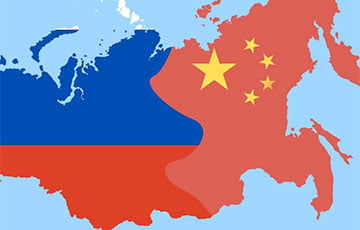NYT: The FSB Calls China "the Enemy"
19- 7.06.2025, 18:34
- 16,520

Beijing is preparing to "make territorial claims" against Russia.
Despite Vladimir Putin's official statements about unbreakable friendship with China, Beijing is seen as a potential adversary inside Russia's FSB. This was reported by The New York Times, citing an internal eight-page planning document that came into the editorial board's possession. According to the publication, the classified FSB unit, previously not mentioned publicly, explicitly calls China an "enemy" and warns of a serious security threat from the eastern neighbor. According to the document, Chinese intelligence services are actively trying to recruit Russian agents, gain access to classified military technology and poach disillusioned Russian scientists.
The FSB also claims that China is conducting surveillance of the Russian army's actions in Ukraine in order to study Western weaponry and tactics. In addition, according to the Federal Security Service, Chinese academic circles are "preparing the ground for making territorial claims" against Russia, and China's intelligence services are conducting reconnaissance in the Arctic using academic institutions and mining companies.
NYT notes that the document describes a "tense and dynamic" intelligence battle between the two countries, which officially demonstrate friendly relations. It is particularly telling that three days before the start of a full-scale invasion of Ukraine in February 2022, the FSB approved a new counterintelligence program called "Entente-4." The ironic name, apparently referring to the alliance between Moscow and Beijing, actually concealed the task of countering Chinese espionage, the publication writes.
The document stresses that the moment of the program's launch was not chosen by chance. At that time, Russia was concentrating almost all of its military and intelligence resources in Ukraine, distracting from its eastern borders, which, according to the FSB, could be an incentive for China to take advantage of the situation.
Since then, according to the FSB, Chinese intelligence has become significantly more active. Russian officials, experts, journalists and businessmen with access to power circles have been targeted. In response, the Federal Security Service instructed its employees to take measures to neutralize the threat - in particular, to warn Russian citizens who work closely with China about the risks and Beijing's attempts to gain access to strategically important information.
The employees were also instructed to track users of the Chinese messenger WeChat, including hacking into devices and analyzing the resulting data using special software at the disposal of the Russian security service.
The document was obtained by the hacking group WeChat. The publication provided it to six Western intelligence agencies for analysis, and all of them confirmed its authenticity. The NYT emphasizes that this is the most detailed inside look to date at Russia's counterintelligence assessment of China.
The New York Times notes that China, despite suspicions of espionage and potential territorial ambitions, remains Russia's main economic partner in the face of Western sanctions pressure. It was Beijing's support - in the form of oil purchases, microchip supplies, software and dual-use components - that largely helped Moscow soften the blow of international isolation after Vladimir Putin launched a full-scale war in Ukraine.











